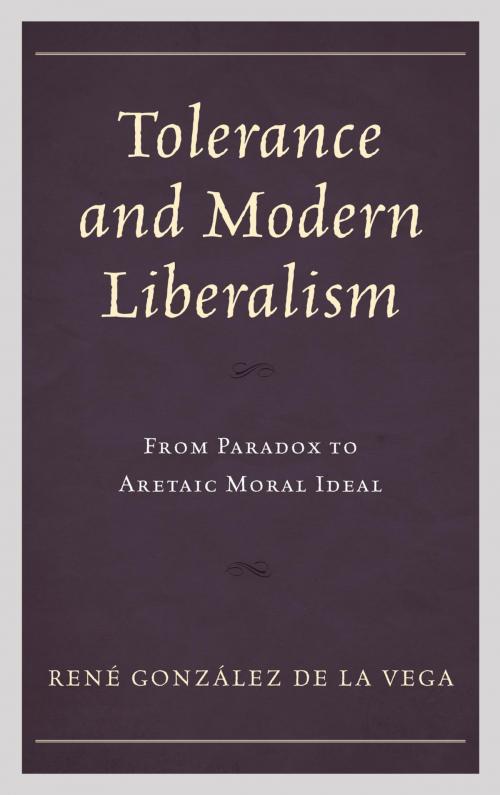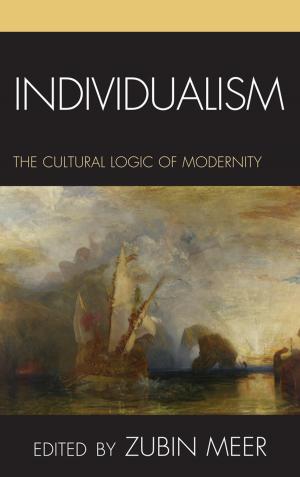Tolerance and Modern Liberalism
From Paradox to Aretaic Moral Ideal
Nonfiction, Religion & Spirituality, Philosophy, Political, Ethics & Moral Philosophy| Author: | René González de la Vega | ISBN: | 9781498529075 |
| Publisher: | Lexington Books | Publication: | October 19, 2016 |
| Imprint: | Lexington Books | Language: | English |
| Author: | René González de la Vega |
| ISBN: | 9781498529075 |
| Publisher: | Lexington Books |
| Publication: | October 19, 2016 |
| Imprint: | Lexington Books |
| Language: | English |
Modern liberal societies are submerged in conflict and disagreement. People disagree about almost everything—not only about matters of justice, but also about issues that are more private. They disagree on how to interpret freedom and equality; they disagree and even experience conflict with issues regarding the use of a veil, or children wearing crucifixes in public spaces; they also enter into conflict and disagreement regarding issues such as homosexuality, extramarital sex, drugs, euthanasia, abortion, suicide, and experimentation on animals. All these issues can be understood as moral problems, but we also have disagreements concerning other topics that are unrelated to moral issues.
For modern liberals, the existence of such conflicts is due to the possibility of people, bearing the right to disagree, expressing themselves in a free and equal way. This freedom is indeed one of the biggest triumphs in the history of liberalism: many societies have come to be constituted by autonomous and free individuals who have the capacity to choose their lives and the values that will guide them.
In the middle of this panorama, tolerance plays an extremely important role for liberal thinking. Without tolerance, disagreements and conflicts will hardly coexist or be resolved in a peaceful manner. Liberals say that despite the fact that there is a plurality of values and diversity within the different lifestyles, we should tolerate all those who do not agree with our own values. On this view, tolerance becomes a key element for the flourishing and progression of moral life.
Yet, liberals should ask themselves: is modern liberalism’s structure of practical reason compatible with the moral ideal of tolerance? René González de la Vega argues that liberal deontological theories cannot give proper answers to the main problems raised by the moral ideal of tolerance.
Tolerance and Modern Liberalism: From Paradox to Aretaic Moral Ideal will be of interest to students and scholars of political and moral philosophy, political theory, and law, including those who focus on human rights and on deontological liberalism.
Modern liberal societies are submerged in conflict and disagreement. People disagree about almost everything—not only about matters of justice, but also about issues that are more private. They disagree on how to interpret freedom and equality; they disagree and even experience conflict with issues regarding the use of a veil, or children wearing crucifixes in public spaces; they also enter into conflict and disagreement regarding issues such as homosexuality, extramarital sex, drugs, euthanasia, abortion, suicide, and experimentation on animals. All these issues can be understood as moral problems, but we also have disagreements concerning other topics that are unrelated to moral issues.
For modern liberals, the existence of such conflicts is due to the possibility of people, bearing the right to disagree, expressing themselves in a free and equal way. This freedom is indeed one of the biggest triumphs in the history of liberalism: many societies have come to be constituted by autonomous and free individuals who have the capacity to choose their lives and the values that will guide them.
In the middle of this panorama, tolerance plays an extremely important role for liberal thinking. Without tolerance, disagreements and conflicts will hardly coexist or be resolved in a peaceful manner. Liberals say that despite the fact that there is a plurality of values and diversity within the different lifestyles, we should tolerate all those who do not agree with our own values. On this view, tolerance becomes a key element for the flourishing and progression of moral life.
Yet, liberals should ask themselves: is modern liberalism’s structure of practical reason compatible with the moral ideal of tolerance? René González de la Vega argues that liberal deontological theories cannot give proper answers to the main problems raised by the moral ideal of tolerance.
Tolerance and Modern Liberalism: From Paradox to Aretaic Moral Ideal will be of interest to students and scholars of political and moral philosophy, political theory, and law, including those who focus on human rights and on deontological liberalism.















